The 6 Most Toxic Products at Baby Stores
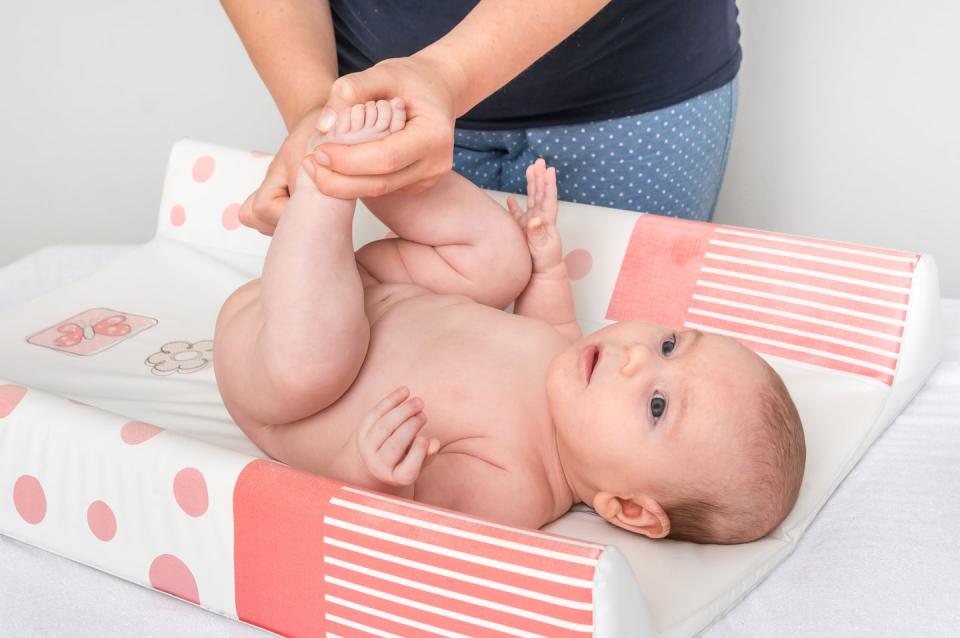
1) Changing Pads
Many changing pads are made from polyurethane foam and are coated in polyvinyl chloride (PVC). Products made with polyurethane foam could contain harmful flame-retardant chemicals. For decades, such chemicals—linked to hormone disruption, cancers, and improper brain development—have been added to foam-based products to prevent fires, but scientists disagree about whether the chemicals improve fire safety. Avoid the "TB117" label – which indicates that the item meets a California flame resistance standard that virtually requires the use of chemical flame-retardants. And rest assured that keeping these chemicals out of your baby's changing pad won't increase your risk of a house fire.
Additionally, it's possible these pads could contain phthalates, which can cause hormone disruption, liver and thyroid toxicity, asthma symptoms, and obesity. Look for products that have a GREENGUARD Gold Certification to ensure minimal chemical emissions.
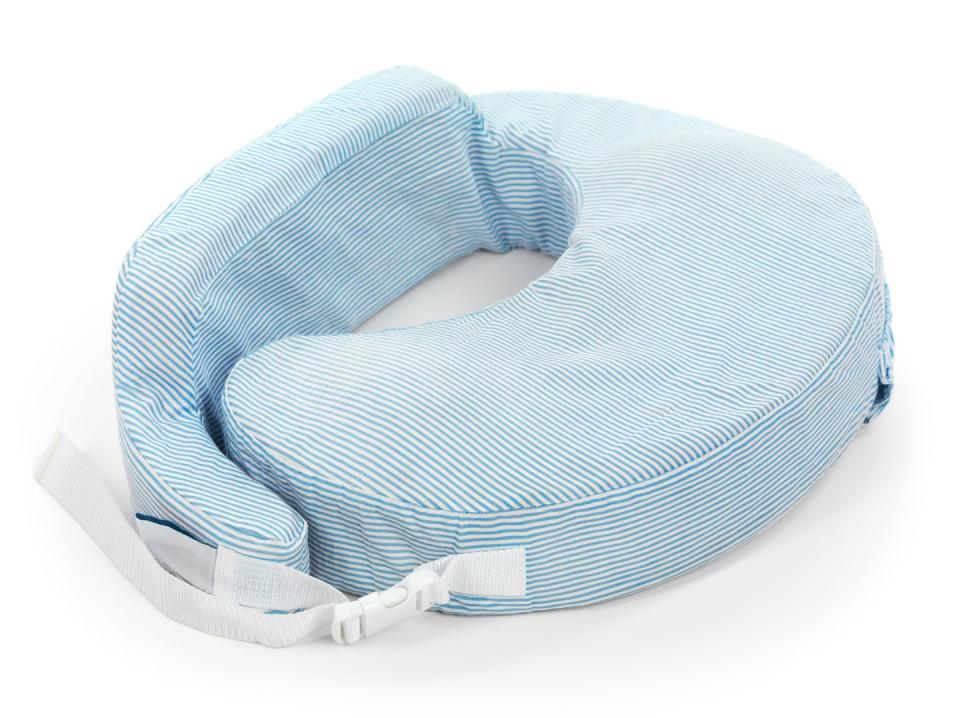
2) Nursing Pillows
Although nursing pillows, which fit around the waist to aid breastfeeding, are not required to meet furniture flammability standards, some manufacturers make sure they do. While on the surface that sounds safer, it may involve injecting the polyurethane foam filling with flame retardant chemicals. And no one wants to expose a nursing baby to a chemical condiment with her meal. The best way to avoid this? Look for products labeled free of chemical flame-retardants. If you can't tell, ask the retailer.
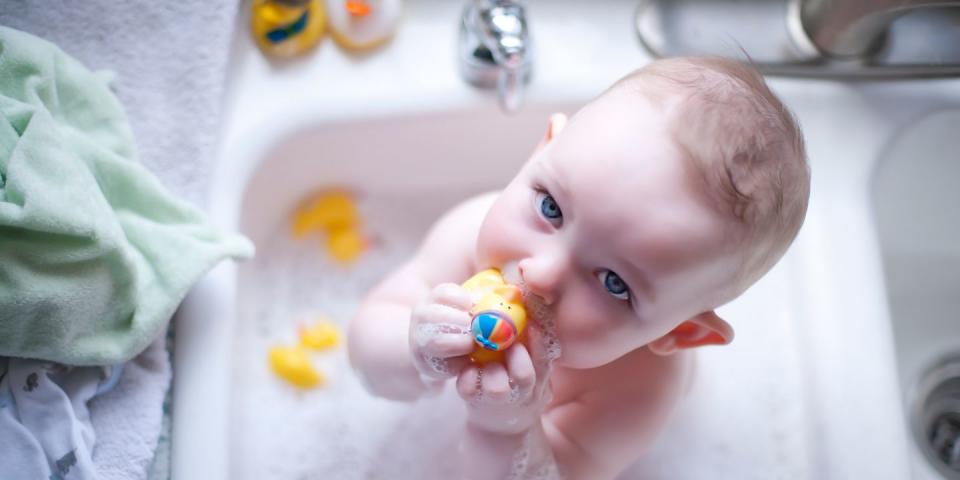
3) Vinyl Bath Toys
It's not hard to find waterproof, flexible vinyl toys at the baby store, promising to make bath time and playtime fun. But vinyl toys are made from vinyl chloride, a toxic pollutant linked to cancer, birth defects, and learning disabilities. Vinyl chloride can also contain high levels of phthalates, endocrine-disrupting chemicals added to plastic to make them soft and pliable. Keep bath time clean by avoiding toys with "vinyl" in the product description or search specifically for non-toxic bath toys.
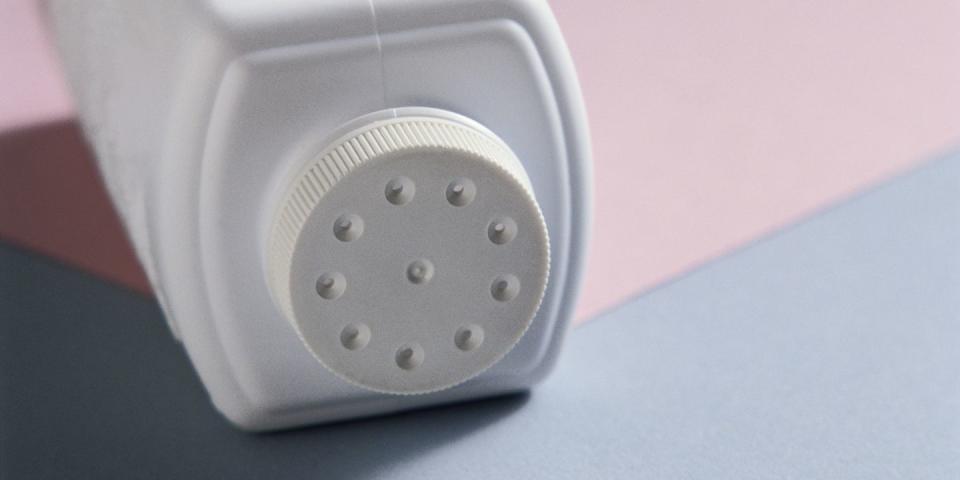
4) Baby Powder
The American Academy of Pediatrics recommends against using baby powder on your baby because breathing the tiny particles can irritant baby's lungs—and those of her caregivers, too. They also note that powder can irritate a baby's already delicate skin. Baby powder made of talc may be contaminated with asbestos, which causes mesothelioma, a deadly form of cancer. (While talc products have been asbestos-free since the 1970s, the product in its natural form contains small amounts of asbestos; the link between asbestos-free talc and cancer is still unclear.) Even alternative forms of baby powder, like ones made with cornstarch, can create puffs of dust that a baby could inhale. For optimal safety, use lotions or diaper cream instead.
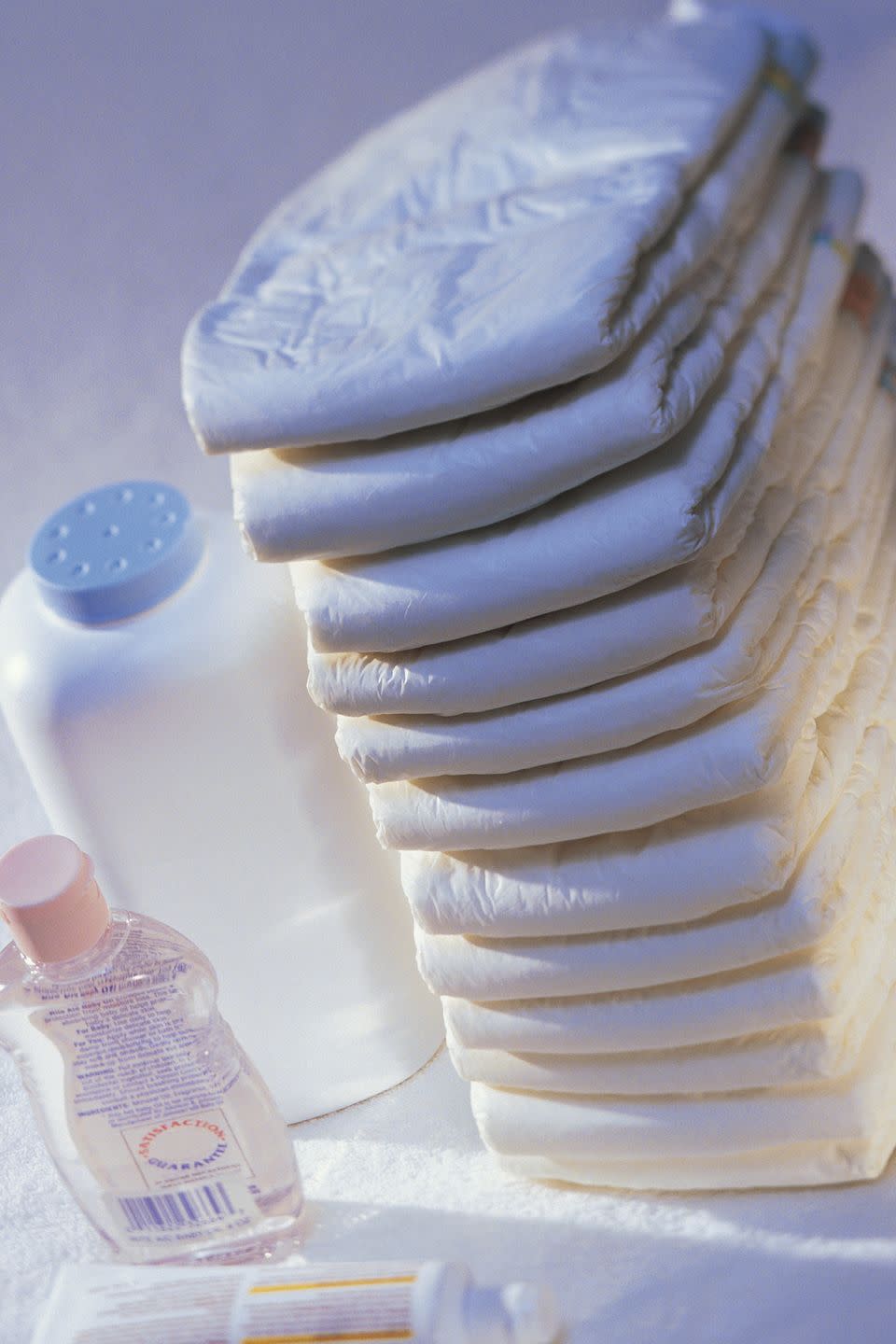
5) Baby Oil
Baby oil is a byproduct of distilling petroleum to produce gasoline. But it's not so much the petroleum byproduct itself that makes baby oil a concern as much as the fragrances that are so often included in the chemical formulation. Cosmetic fragrances can trigger allergies, interfere with the immune system, and irritate the lungs. Slathering your baby's delicate skin with a fragrance-loaded product could set her up for allergies later in life. The verdict? Baby oil can be safe so long as its fragrance-free.
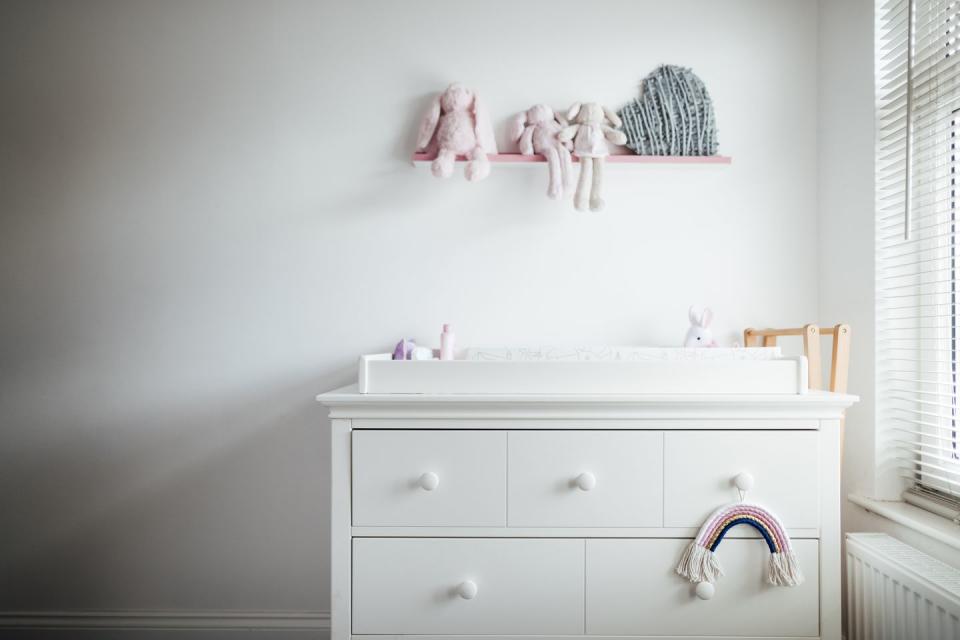
6) Engineered Wood
It's worth investing in cribs, changing tables, and dressers that are made from real wood, rather than engineered wood. Solvents—which can irritate delicate skin, cause respiratory issues, and cause cancer—are typically found in the adhesives that hold laminated wood together. Formaldehyde, which is classified as a human carcinogen, is also commonly found in adhesives for composite woods and glues.
Here's what chemicals to look our for and how to avoid them.